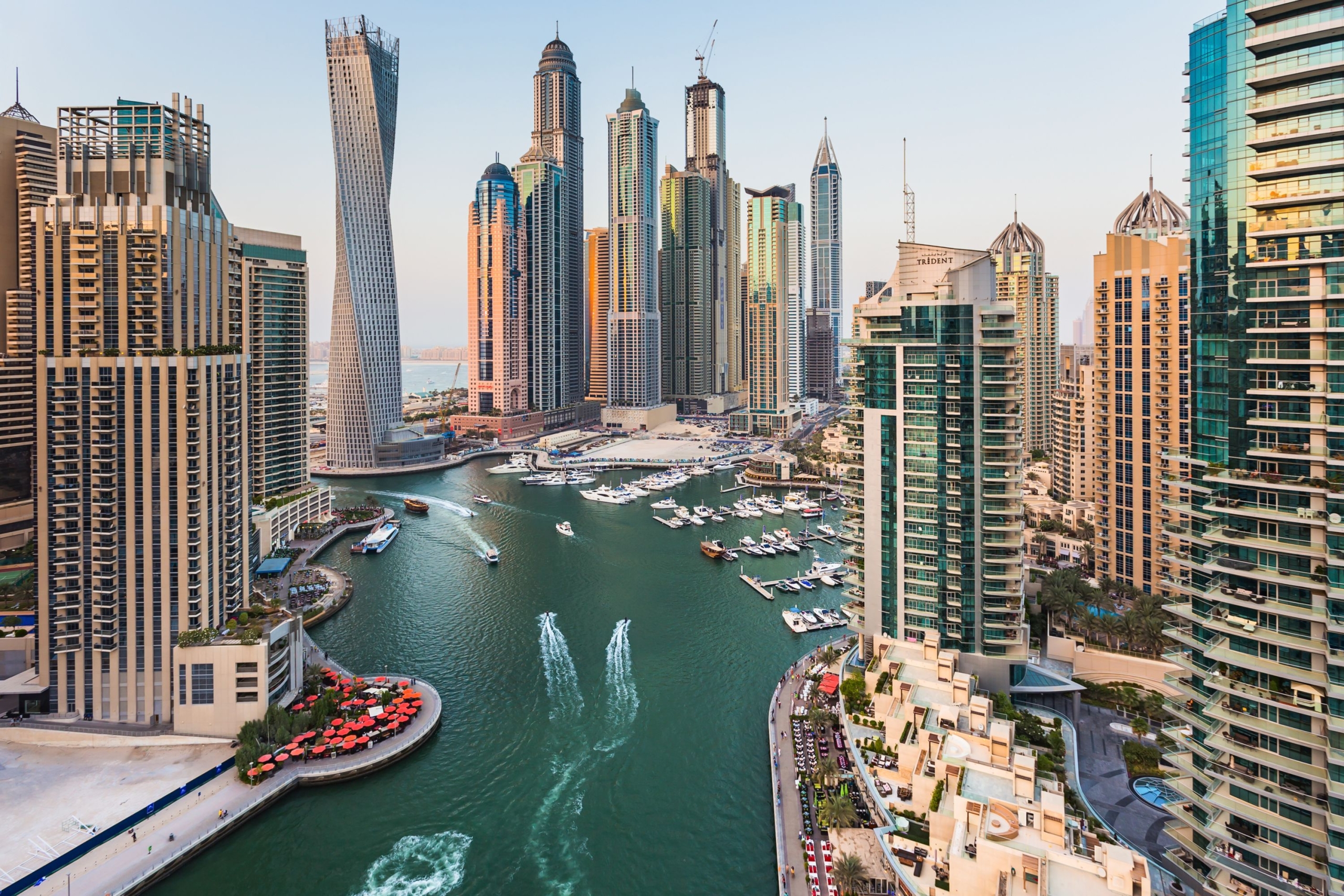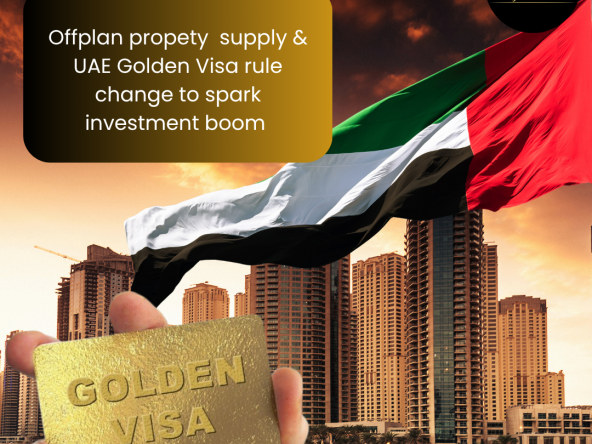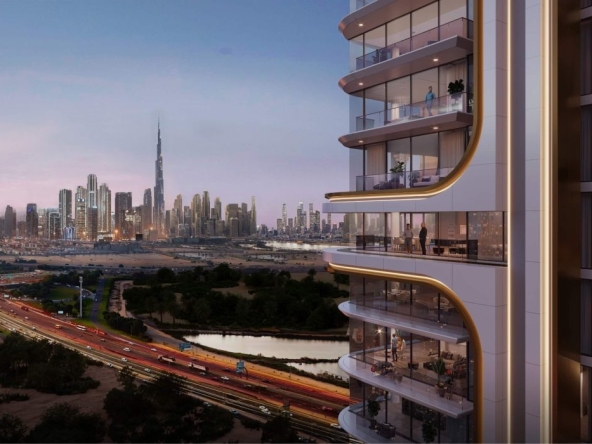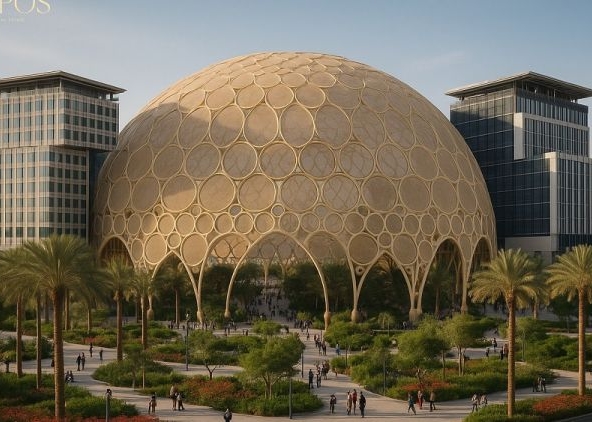A number of strategic initiatives that the UAE recently announced are expected to support the expansion of its real estate industry and make it simpler for buyers and investors to participate and prosper. Following an impressive 20% growth in the value of real estate transactions last year, to an astounding $207 billion, Dubai’s real estate market has performed well, and these policies follow suit. Below is a summary of these initiatives and their implications for the UAE real estate market going forward.
1. Smart Rental Index in Dubai
In early January, the Dubai Land Department (DLD) launched a smart rental index, which rates residential buildings on a scale from one to five stars. This system evaluates over 60 criteria, such as location, sustainability, building security, age, and amenities. The goal is to create more transparency in the rental market, enabling both tenants and landlords to make more informed decisions about their rentals.
This index is seen as a big step towards improving market transparency and could boost investments in Dubai’s real estate by making it easier to evaluate returns across various areas in the city. It will help potential investors understand rental trends and performance across different types of properties.
2. Freehold Property Conversion on Sheikh Zayed Road and Al Jaddaf
In another major move, Dubai has introduced an initiative allowing private property owners of all nationalities in the Sheikh Zayed Road and Al Jaddaf areas to convert their properties into freehold status. This new policy, announced on January 19, aims to open up these prime locations to more foreign investment. A total of 457 plots will be eligible for conversion, including 128 plots along the famous Sheikh Zayed Road and 329 plots in the Al Jaddaf area.
This change is expected to significantly impact Dubai’s property landscape, particularly along Sheikh Zayed Road. With many older buildings from the 1970s and early 2000s along this stretch, the freehold conversion could lead to a dynamic transformation. Vacant plots will be developed, and older properties could be redeveloped, potentially offering a mix of new developments, upgrades, and properties for sale.
3. Changes to Bank Financing and Increased Buyer Costs
On February 1, a new directive from the UAE Central Bank came into effect, instructing banks to stop financing the Dubai Land Department (DLD) registration fees and real estate broker fees for homebuyers. This policy, aimed at increasing market stability and oversight, means that buyers will now need to pay these fees out of pocket instead of financing them through loans.
While this could lead to higher upfront costs for buyers, it also mitigates financial risks for banks, ensuring the market remains stable in the long run. Buyers will need to set aside a larger down payment to cover these additional costs—specifically, the 4% DLD fee and the 2% agent fee—on top of the standard 20% to 30% property down payment.
For smaller investors, this could present a challenge, as the added costs may make it harder to enter the market. However, the move ensures long-term stability by discouraging over-leveraging and excessive borrowing.
4. UAE’s Property Market Growth
Due to government measures like the extension of the 10-year golden visa program and residency permits for remote workers and retirees, Dubai’s real estate market is still thriving. These elements, together with more general attempts at economic diversification, have contributed to the remarkable rise in real estate activity.
Dubai saw an astounding 226,000 real estate sales in 2024, a 36% rise from the year before. Real estate transactions totaled Dh761 billion, a 20% rise from the previous year. In addition, average prices in Dubai’s residential sector have increased by about 20%, with notable increases of 19% and 23% in apartment and villa prices during the third quarter of the year.
5. Increased Transparency and Investment Opportunities
Experts believe that the new policies, particularly the smart rental index and the freehold status for properties along Sheikh Zayed Road, will not only enhance transparency but also increase Dubai’s attractiveness to investors.
Ray Verma, a luxury broker for Eden Realty, noted that the freehold status could open up a broader range of investment opportunities, making Dubai’s property market even more appealing. At the same time, the smart rental index will help tenants and landlords make more informed decisions, improving overall market efficiency.
6. What’s Next for the UAE’s Property Market?
With these initiatives, the UAE is positioning itself as a global real estate hub, attracting international investors and boosting its local economy. While the changes may raise upfront costs for buyers in the short term, they are expected to create a more sustainable and transparent market in the long run.
Additionally, the introduction of high-speed rail services between Abu Dhabi and Dubai will facilitate easier movement between the two emirates, making it even more convenient for people to explore investment opportunities in various parts of the country. This interconnected infrastructure will also support continued growth in the UAE’s property sector as new developments and population growth continue to rise.
Conclusion
Recent policy reforms in the UAE portend a strong real estate market in the future. Through actions that increase market stability, foster transparency, and provide new investment opportunities, the nation is laying the groundwork for its real estate industry to grow steadily. These improvements offer great chances for both purchasers and investors to profit from one of the world’s most vibrant real estate markets.
As these changes continue to influence how the UAE real estate market develops in the future, stay tuned for more updates.
Recent Initiatives Rolled Out to Support the UAE Property Market:
- Smart Rental Index (Dubai) – Launched in January 2025, offering a rating system for residential buildings.
- Freehold Property Conversion (Sheikh Zayed Road & Al Jaddaf) – Allowing private property owners of all nationalities to convert their properties to freehold status (January 2025).
- UAE Central Bank Directive – Instructing banks to stop financing DLD and broker fees (Effective February 1, 2025).
Checkout new properties at Royal Estates , Royal Estates LLC , Top Real Estate Company in Dubai




